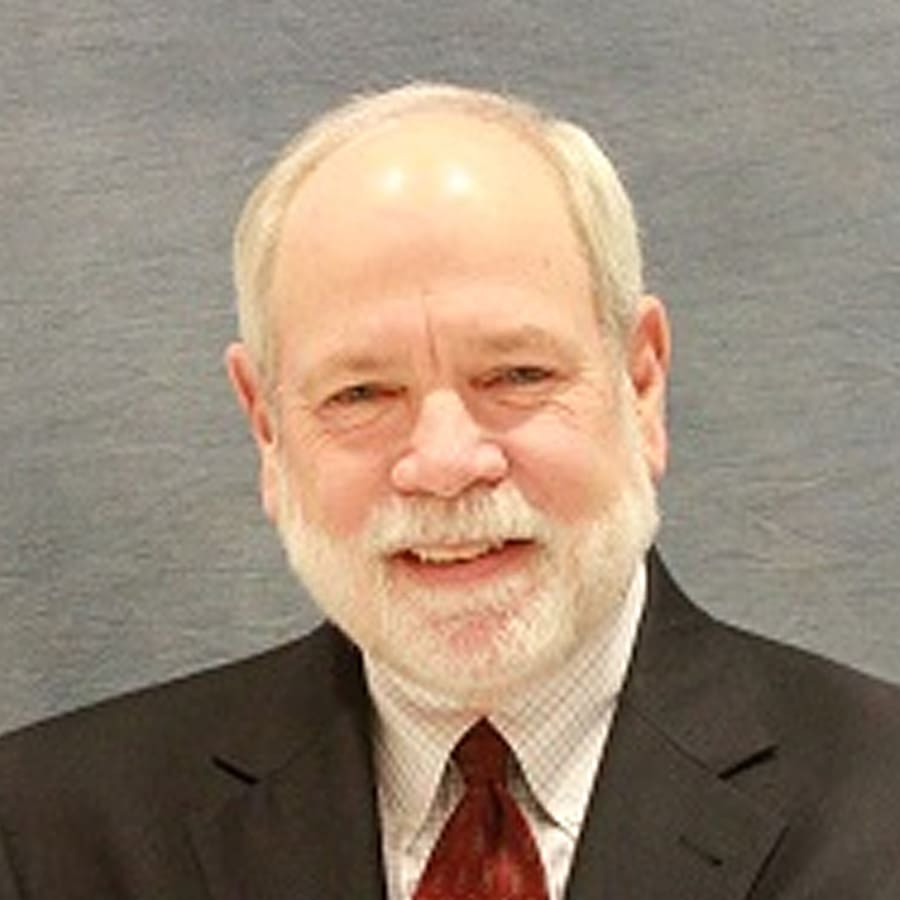Augustine of Hippo, the North African bishop of the fourth and fifth centuries anno Domini, and author of the famous Confessions and The City of God, continues to be perhaps the most important post-biblical theologian of Christian thought. In our time his thought is again enjoying a revival. Two representatives of this revival are David Naugle and James K.A. Smith. Comment asked them to correspond with each other about the enduring significance of Augustine.
David Naugle:
“I am here as you are here, as you are me, and we are all together.” Well, yes; I was, and am, a Beatles fan. And this opening line from “I am the Walrus” (Magical Mystery Tour) is one of their most intriguing—and puzzling. I really don’t know what Lennon and McCartney had in mind when they penned this phrase. Maybe it’s just a bit of nonsense. Perhaps it’s a monistic sentiment that reality is ultimately just one thing. At the very least, it seems to suggest something about our common humanity: I am here and so are you; you and I are basically one and the same; and we are all in this thing . . . this life . . . together.
Now I don’t want to overdo it, but if these “Walrus” words suggest a unity to human nature and experience, then I think St. Augustine would agree, albeit in theistic terms. Certainly Augustine’s profound Christian understanding of and response to our common human condition made him extraordinarily influential for a very long time. Indeed, Augustine regarded his own search for real happiness through the things that he loved to be quite conventional. And his profound reflections on the nature of this shared human journey is one of the things that make Augustine and his ideas remarkably relevant for us today.
In other words, Augustine believed that most people lived lives very much like his own, despite the obvious differences in time, space and detail. He felt his story was not unique, but an example of struggling, discontented human beings, earnestly looking for lasting happiness—just like we are! He wandered about in ignorance and confusion trying to figure out what life was all about—just like we do! He attached himself in love helter-skelter to those things he thought would make him happy—just like us! He discovered that the satisfaction he derived from the things he loved for happiness’ sake didn’t last very long—just as the satisfaction we derive from the things we love doesn’t last very long for us, either!
Augustine also realized how his ongoing, excessive dependence upon various entities to secure the fulfillment he was looking for enslaved him in a miserable life of bad habits and virtual addictions. Sex was Augustine’s specific downfall. At the end of the day, his intense quest for contentment resulted in nothing but failure and frustration. His experience echoed that of the “preacher” in the book of Ecclesiastes: “Then I considered all that my hands had done and the toil I had expended in doing it, and behold, all was vanity and a striving after wind, and there was nothing to be gained under the sun.” (2:11) No matter how hard he tried, Augustine still felt empty, depressed, and restless. Sound familiar?
However, Augustine finally discovered, after a long, bumpy ride, that God had made him, and all of us, for himself, and that his heart, and all human hearts, will be forever restless (that is, unhappy) until they rest in Him. This is the story Augustine tells about himself, warts and all, in his famed spiritual autobiography entitled Confessions.
As one of the Church’s great classics, Augustine no doubt wrote his Confessions to acknowledge his own faith in God as his chief good, and out of a need to confess his sins before Him. But I think he had other purposes in mind for this work as well. Since he believed there was something about himself as a human being and his own journey that was typical of most everyone, everywhere, he also wrote this book to assist us in our journeys toward God and genuine happiness—hopefully saving us considerable agony and disappointment—by the example of his own life. His loves and his life were disordered without God; his loves and his life were reordered in God. His example consists of an education of the heart in God, in love, and in authentic happiness. You, me, Augustine—indeed, we are here and all in this together.
James K.A. Smith:
It is remarkable that a fifth-century African bishop continues to fascinate and frustrate us in the dawn of the twenty-first century. In so many ways, we might as well be from different planets: Augustine is “pre”- to all of our “post”-s. He’s not only pre-modern, he’s pre-medieval. He’s not only pre-electronic, he’s pre-print. He wrote and published reams and reams long before Gutenberg staged his revolution. Indeed, as Brian Stock has shown in Augustine the Reader: Meditation, Self-Knowledge, and the Ethics of Interpretation (Belknap Press, 1996), Augustine’s world is not only pre-print, it’s pre-literate, emerging from a fundamentally oral culture where the rhetor reigns and the legacy of the bishop is his sermons, not his books. Finally, Augustine’s “world” is relatively small, circumscribed by the boundaries of the empire. What could such a foreign voice have to say to us, in our post-modern, post-Christian, post-literate, globalized world?
And yet. Augustine’s voice continues to loom over our imaginations—indeed, continues to fuel our imaginations. While some still enjoy railing against caricatures of Augustine the misogynist or Augustine the “substance metaphysician,” a steady stream of thinkers in the twentieth century and into the present have found in the vast expanse of Augustine’s thought a catalyst for naming “the present” and understanding ourselves. From Martin Heidegger and Hannah Arendt (whose dissertation, Love and Saint Augustine, I would contend, is the great 20th century study of Augustine), from Reinhold Niebuhr to Jean Bethke Elshtain, public intellectuals have found in the ancient saint an analysis of our finitude which seemed, in important ways, contemporary. When it comes to Augustine, we’re all dwarves standing on the shoulders of other dwarves standing on the shoulders of the giant.
No thinker has been more important for my work than Saint Augustine. Indeed, the fabric of his thought has become so woven into the pleats of my imagination that I can no longer trace the stitches. Quite apart from those explicit places where I engage him head on, he accompanies me in my engagements with the world. Whether I’m raising my children or reading John Updike, learning to garden or listening to Radiohead, he’s there. And far from the caricatures of the dour, guilt-ridden, self-flagellating, anti-erotic scholastic, I’m accompanied by an Augustine who has the sacramental honesty of Graham Greene. In the interests of recruiting some fellow travelers onto this bandwagon, let me highlight just three aspects of Augustine’s thought that I find fertile and wise.
First, apparently contrary to some ghastly, puritanical “textbook” picture of Augustine, when I think of the tireless bishop I think first and foremost of love. For Augustine, love is who we are. We are made to love, for love, and what we love is what defines us. One can see this from the Confessions (“You have made us for yourself and our hearts are restless until they rest in you”) to the City of God (where he defines a “people” as “the association of a multitude of rational beings united by a common agreement on the objects of their love”). In contrast to the rationalism we have inherited from modernity, I have found Augustine’s emphasis on love to be a more holistic account of what drives us.
Second, I find an illuminating nuance in Augustine’s account of the “right order” of love, more specifically in his distinction between uti and frui (between “use” and “enjoyment”) articulated in De doctrina christiana (often poorly translated as On Christian Doctrine; better translated, On Christian Teaching, since it is the act of teaching, instruction, and preaching he has in mind). Indeed, I think this distinction anticipates the structure/direction distinction so well articulated in Al Wolters’s little gem, Creation Regained. While Augustine contends that all humans are essentially lovers, he also recognizes that we don’t all love the same thing. Indeed, the Fall, rather than shutting down love or desire, disorders and misdirects us. We end up loving or “enjoying” what we should only be “using;” in short, we start making idols out of creation, when in fact they’re meant to function as icons that point us to God. But for Augustine, once again, this isn’t just a matter of intellectual mistakes. It comes down to how we construe the world—what we love and how we love it.
Finally, I find Augustine’s account of political life to be incredibly nuanced and a rich resource for contemporary self-understanding. In particular, I appreciate two features of the City of God: first, he continues to make love central to what defines a “people” or “commonwealth”—that a civitas is defined by what it loves as “ultimate.” Second, what we love is inextricably linked to what we worship. True justice is a matter of right worship. Exploring that (essential) connection could reconfigure how we analyze our political institutions.
David Naugle:
In highlighting Jamie’s excellent insight that St. Augustine is the “pre”- to all of our “post”-s, we should emphasize that the great bishop of Hippo is also the “post” to all of our “post”-s as well. In the West, this pre-eminent, fifth century pillar of the Church pre-dates, dates, and post-dates us simultaneously. If, indeed, the European philosophical tradition primarily consists of a series of footnotes to Plato the Athenian (as A. N. Whitehead famously suggested in Process and Reality), then the same, as well as the Western ecclesiastical tradition, are even more indebted to this matchless citizen of the City of God. What Jamie is saying, it seems to me, is that Augustine is the perennial philosopher and his thought is the perennial philosophy—philosophia perennis—the permanently significant philosophy, the philosophy of all philosophies, regardless of topic. I wholeheartedly agree. If it was necessary for me to give my “last lecture,” my topic would undoubtedly be on Augustine’s concept of the order of the loves—the ordo amoris—with its profound implications.
In any case, if Augustine has, in fact, given us the perennial philosophy, he still would not be proud of it. Why? Because he recognized that this coveted ideal was not merely a matter of human intelligence and effort, but of grace and faith. Having submitted his own weak inferences in a child-like manner to the announcements of heaven, Augustine discovered the truths about God Himself, the world, human nature, sin, salvation, love, politics, and the goal of history in the graciously revealed biblical narrative of creation, fall, redemption and consummation. Though it took a while, Augustine finally believed it in order that he might truly understand it; and having truly believed it, he then employed his towering intellect to further understand and explain what it was he had believed. In this sense, as Jamie points out, we are all dwarves standing on the shoulders of other dwarves who standing on the shoulders of Augustine the giant. We are the grateful beneficiaries of this incomparably great Christian disciple, philosopher and theologian.
Be this as it may, I think that Saint Augustine would recoil a bit at this notion of us dwarves standing atop his giant shoulders. Instead, I believe he would prefer to be numbered among the diminutives, perhaps, anachronistically, as a Swiftian Lilliputian or a Tolkienian Hobbit (the Hobbits’ undersized stature presumably signified human frailty). Even if Augustine is the perennial philosopher, and even if he should also be regarded as a new Christian Solomon of sorts—like the famous king of old whose vast wisdom, great discernment, and breadth of mind are praised voluminously in 1 Kings 4:29-32, Augustine would be second only to the Queen of Sheba to acknowledge that One greater than Solomon, and certainly One greater than himself, had come (Matthew 4:32).
Jesus is the bread of life and the light of the world. He is the real giant on whose shoulders Augustine himself stood, the One in whom his hearted finally rested. And only in Jesus do we, too, find our rest; it is on his shoulders that we ultimately stand and see. Even so, we do gain a much better glimpse of our Lord from our Augustinian perch.
James K.A. Smith:
Anyone who has experienced “testimonies” in a Pentecostal church can appreciate Augustine’s Confessions. Such testimonies have a basic structure: “I once was lost, and now am found.” The plot is simply that of the prodigal son—which, incidentally, is also the plot that organizes Augustine’s Confessions.
But the point here is not an enumeration of sins. We tend to hear the title of this spiritual classic as if Augustine were “going to confession.” But in fact it’s more like he’s giving his testimony. As David rightly points out, Augustine pens his Confessions not as a catalogue of trespasses but rather as a way of giving his testimony—a way of telling the story of what God has done in his life. Indeed, Augustine struggles with putting this in a book. What’s the point?, he asks at the beginning of Book 10. Well, as David reminds us, he’s sharing his story with the hope that it will “stir up the heart” of those who read it (10.3.4)—spurring them on to find grace just as the story of Saint Antony prodded Augustine and Alypius to ask themselves, “What is wrong with us?” (8.8.19). The Confessions are not intended to be a titillating celebration of his sins, nor are they intended to be a backhanded project of self-promotion. They are written as a testimony with the primary goal of encouraging others in the faith.
Granted, “testimony nights” can turn into spiritual duels: “You were delivered from drugs?” someone might say. “Well, praise the Lord! But I was delivered from drugs and promiscuity.” “Hah! I can top that!” another retorts. “I was saved from drugs and promiscuity and a gambling addiction.” And so on. Such is the irony of testimony, and this irony is not lost on Saint Augustine. In fact, it is precisely on this point that I appreciate Augustine’s rather ruthless introspection that exhibits a Simon-Cowell-like bluntness and honesty about his own brokenness (and blessing).
This culminates in Book 10. At that point, Augustine moves from the past to the present: “I am confessing not what I was but what I am now” (10.4.6). And let’s keep in mind the situation: the Confessions come from the pen of a presiding bishop. We might be stirred and moved by the story of his transformation from licentious frat boy to devout disciple, and we might even be strangely “delighted” to hear about the past sins he has now, by grace, shed (10.3.4). Past sins we can live with; but what about sins in the present? Here we get a little more squeamish. This story is supposed to have a happy ending: sure, you were lost, but now you’re found! Happily ever after.
And yet Augustine’s acute self-examination of the present doesn’t pull any punches. He’s not afraid or ashamed to admit that even his redeemed (and ordained) self still struggles with modes of restlessness—that he still finds himself prone to looking for love in all the wrong places. Salvation is not some kind of magic; even the redeemed soul is every day beset by temptation (10.37.60). I think it’s just this unflinching psychology of temptation that has made Augustine a perennial source of wisdom in politics, as seen most recently in Eric Gregory’s new book, Politics and the Order of Love.
Book 10 is Augustine’s exercise in self-examination in the present, refracted through the prism of the three temptations in 1 John 2:15-17: the lust of the flesh (need I say more?); the lust of the eyes (what Augustine calls “curiosity,” or knowledge just for knowledge’s sake); and the “pride of life” (or ambition, the ambitio saeculi). Augustine plunges into his own faults and failures, dredging the depths of his continued struggles.
The most moving, I think, is his account of ambition and pride (that probably says more about me than Augustine). With respect to the first two temptations, he recognizes that he has acquired “some capacity for self-exploration.” But when it comes to ambition? “In this matter almost none” (10.37.60). Pride and ambition are sly tempters, easily parading as angels of light. For how can we live indifferent to the praise of others?, he asks. If we perform our calling well, we shall receive praise. Shall we be negligent in order to avoid the temptation of praise? Hardly. One can see how the very project of writing his Confession totters on the cusp of this tension. “So why are you really writing the Confessions?” Augustine is asking himself. With unflinching honesty, Augustine launches into an analysis of his prideful inclinations that would be almost torturous were they not suffused with grace. And this from the bishop!
I find strange encouragement in this self-portrait of a sinful bishop. The Confessions resists an easy plot resolution (unlike, I’ll confess, a lot of those Pentecostal testimonies). While they announce that Augustine once was lost and now is found, they’re also honest about the fact that even those who are found sometimes feel lost—that “I Still Haven’t Found What I’m Looking For” can be the anthem of Christians, too. Prodigality is a hard habit to break. Augustine leads us to give thanks for a Father who graciously keeps coming out to meet us.





